BioTropic launches a biodiversity and agroforesting project in the Dominican Republic
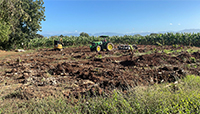
Strengthening cultivated soils is a global challenge. It serves to secure resources in conventional and organic agriculture. The current acute threat to banana cultivation in the Dominican Republic and other Latin American countries has once again brought it into focus:
For some years now, a fungus (Tropical Race 4 - TR4; Fusarium Oxysporum) has been threatening the production of conventional and organic bananas in South and Central America, having already caused devastating damage in Asia and Africa.
The TR4 fungus is found in the soil and prevents the banana tree from being supplied with water, so that it dies afterwards. It can survive in the soil for many years and there is a risk of transmission to uninfected farms. The fungus is spread through dirty shoes, tools, harvest boxes, car tyres and much more.
In order to protect the banana plantations, measures must be taken immediately to prevent the fungus from being introduced into the cultivation areas, because infested soils are unsuitable for the cultivation of organic bananas for decades.
So far, there is no remedy that can save infected banana plants. Researchers are trying to breed TR4-resistant banana varieties, so far with limited success.
The long-term solution, however, is to strengthen the soil to increase resistance to the fungus.
To this end, in 2022, our Dominican Republic office began a project under a PPP (Public Private Partnership) with the following contents:
1. Biodiversity measures for soil improvement.
BioTropic is taking the current threat as an opportunity to introduce biodiversity measures that go beyond the requirements of the EU organic standard. This is done on its own farms as well as on partner farms with a total of 450 hectares of cultivated land.
The measures include:
- Planting crops such as coconut palms, jucca or moringa on the banana plantations.
- Planting legumes to strengthen the soil.
- The expansion of compost management through a modern compost turner.
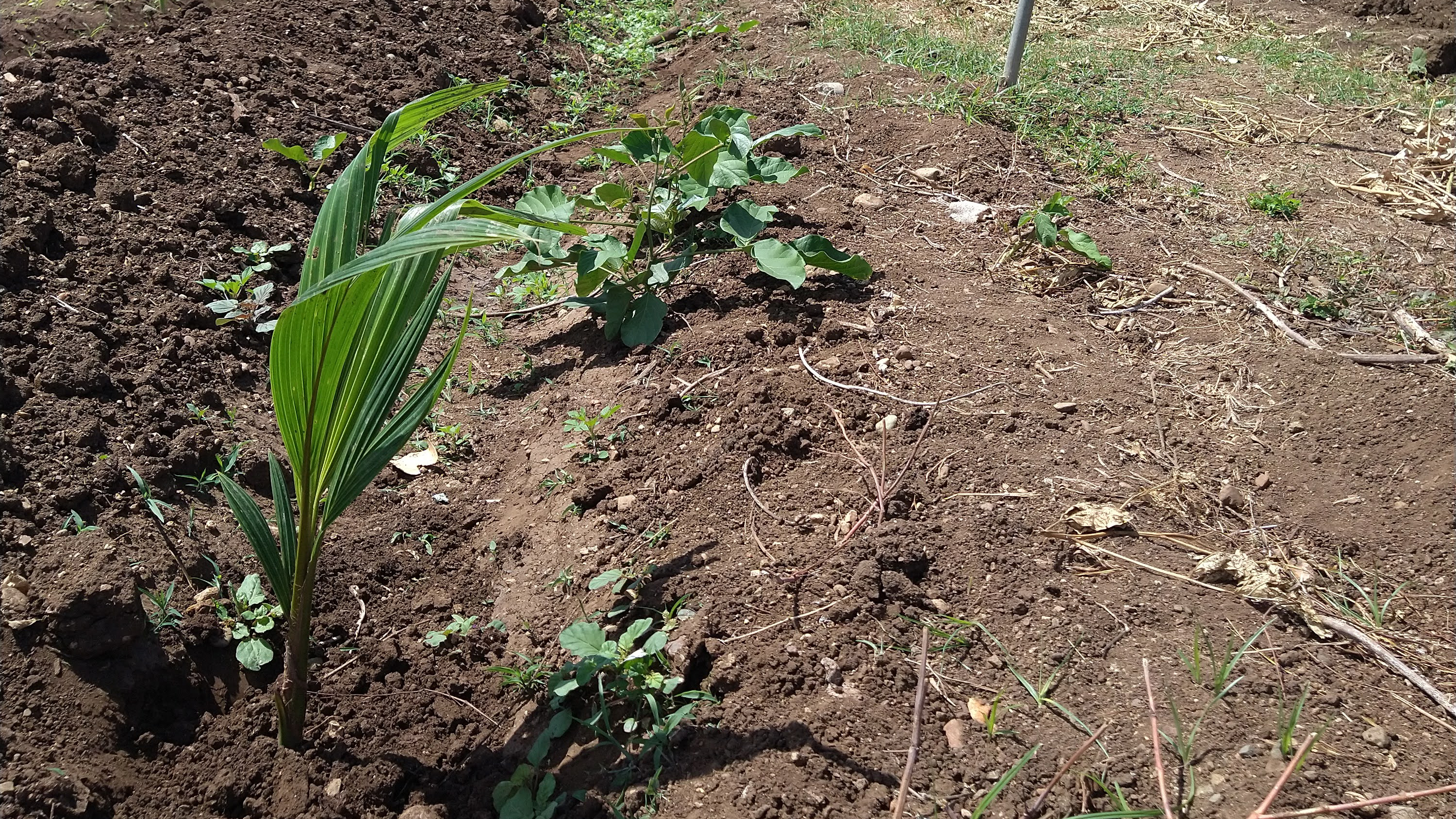
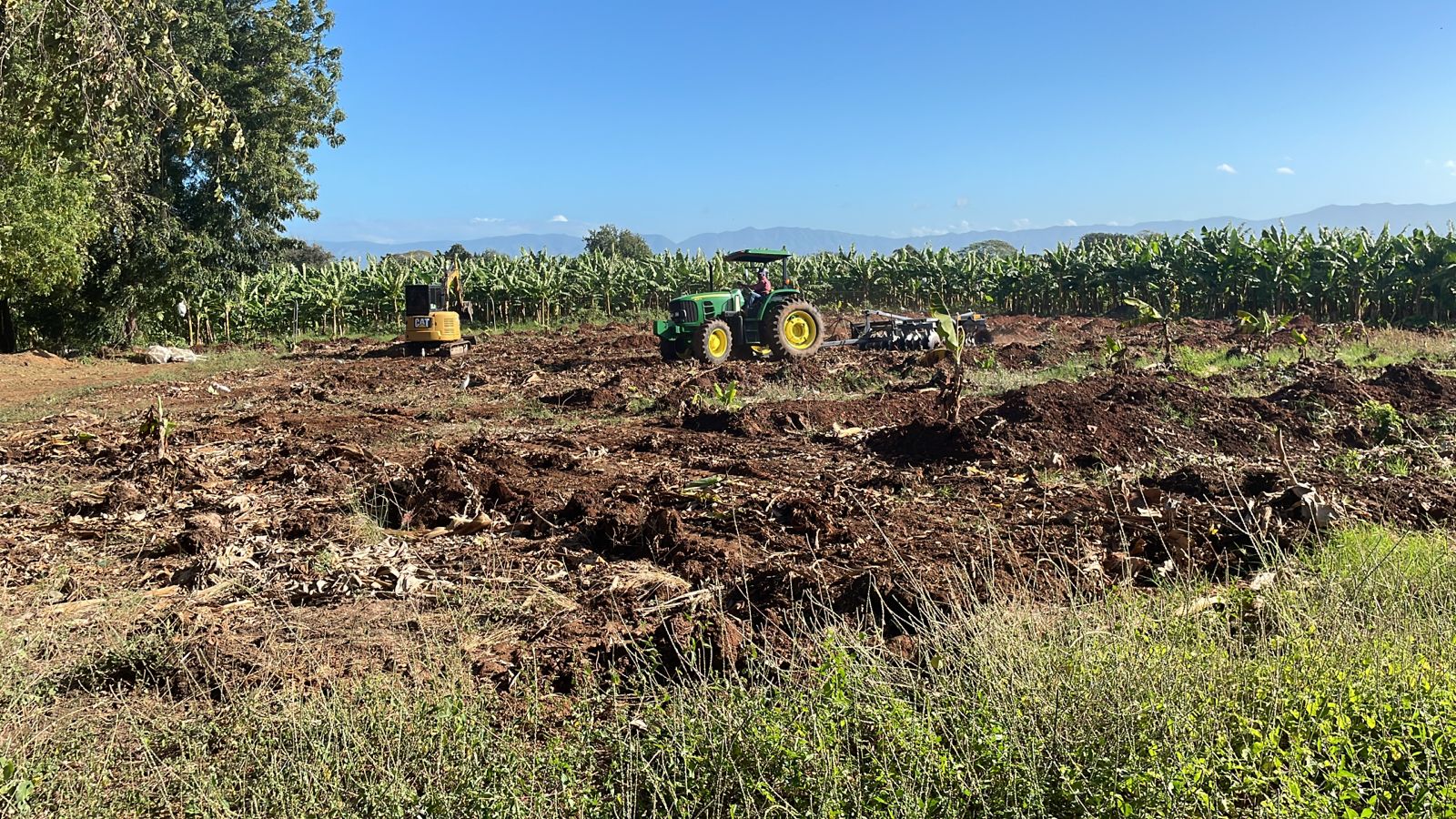
Planting of coconut palms. Extension of compost management.
2. Pilot project agroforesting
On the 15 hectares banana farm next to BioTropic's training centre Centro Ecologico Cibao for ecological & biodynamic cultivation, compost management, water treatment and renewable energies an agroforesting project in banana cultivation, unique in the Dominican Republic, has started.
The project goes far beyond the above-mentioned bio-diversity measures. For this purpose half of the organic banana plantation has already been cleared and a new plantation planted according to agroforesting criteria.
If this form of cultivation proves successful it will be transferred to other farms.
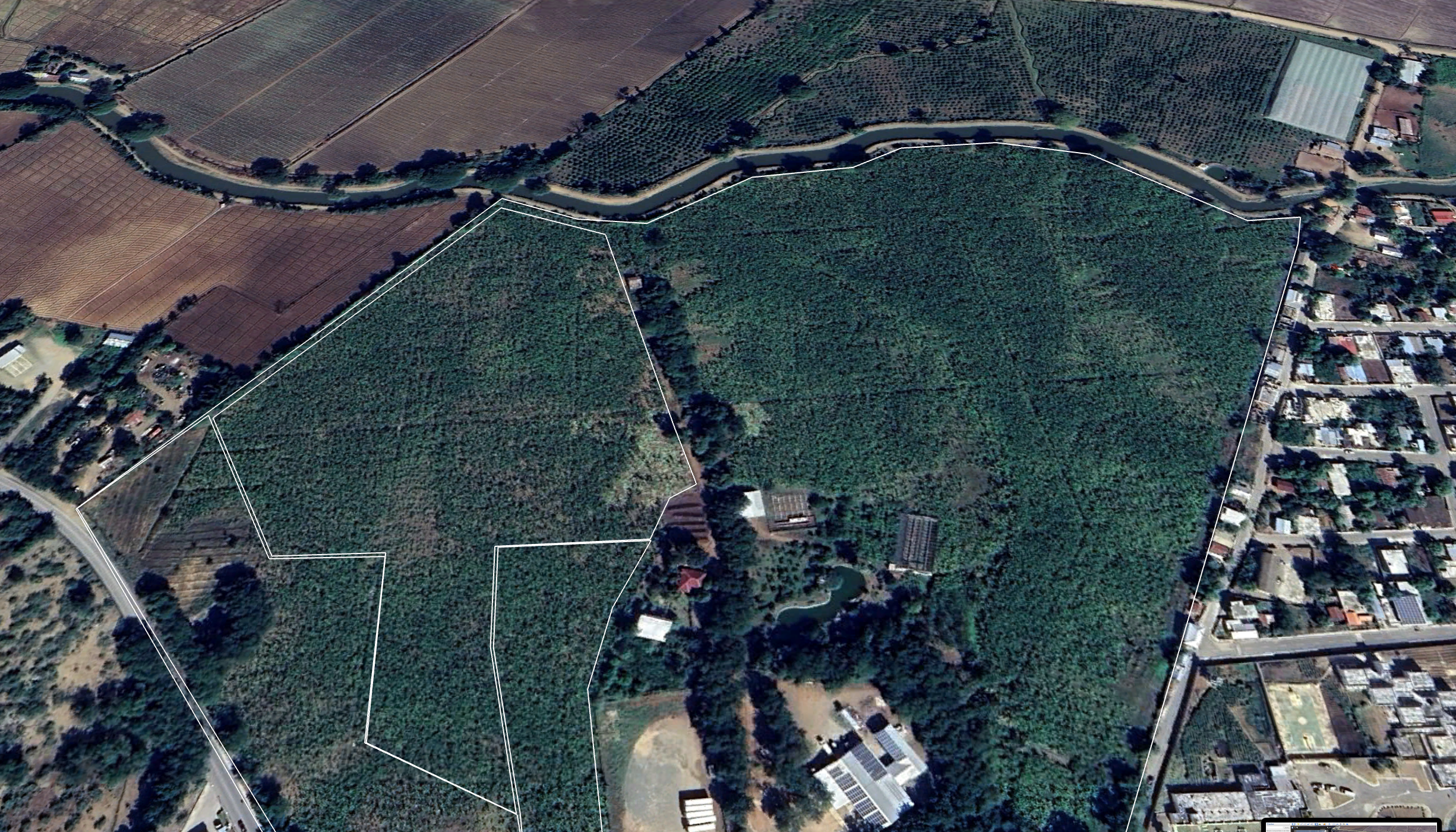
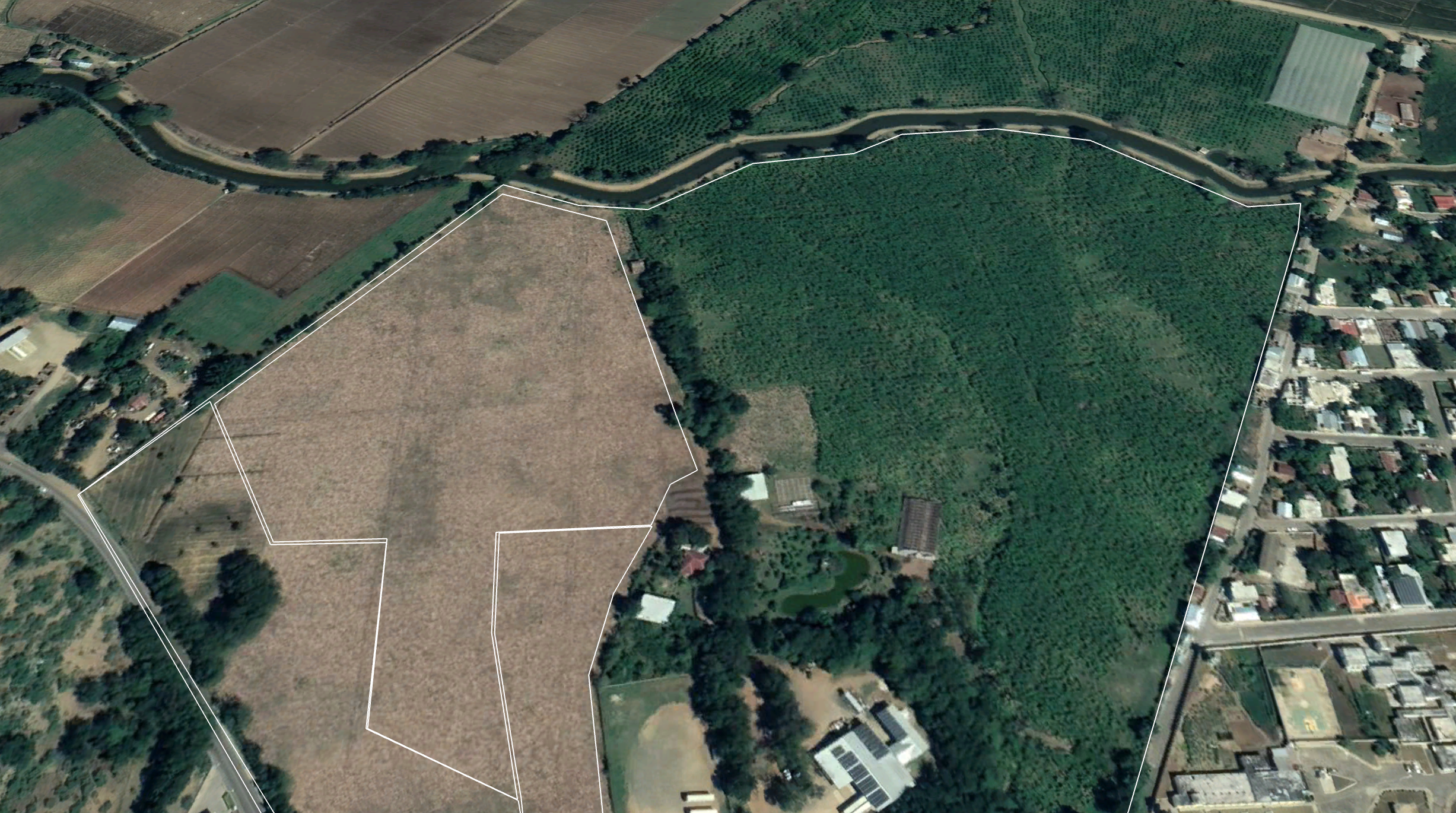
Centro Ecologico Cibao before the clearing. Centro Ecologico Cibao after clearing.
3. Introduction of innovative water management
Another element of the PPP is the introduction of modern water management which is subsequently certified. For this purpose a new irrigation system was installed on the Centro Cibao farm, which enables the targeted irrigation of individual plots.
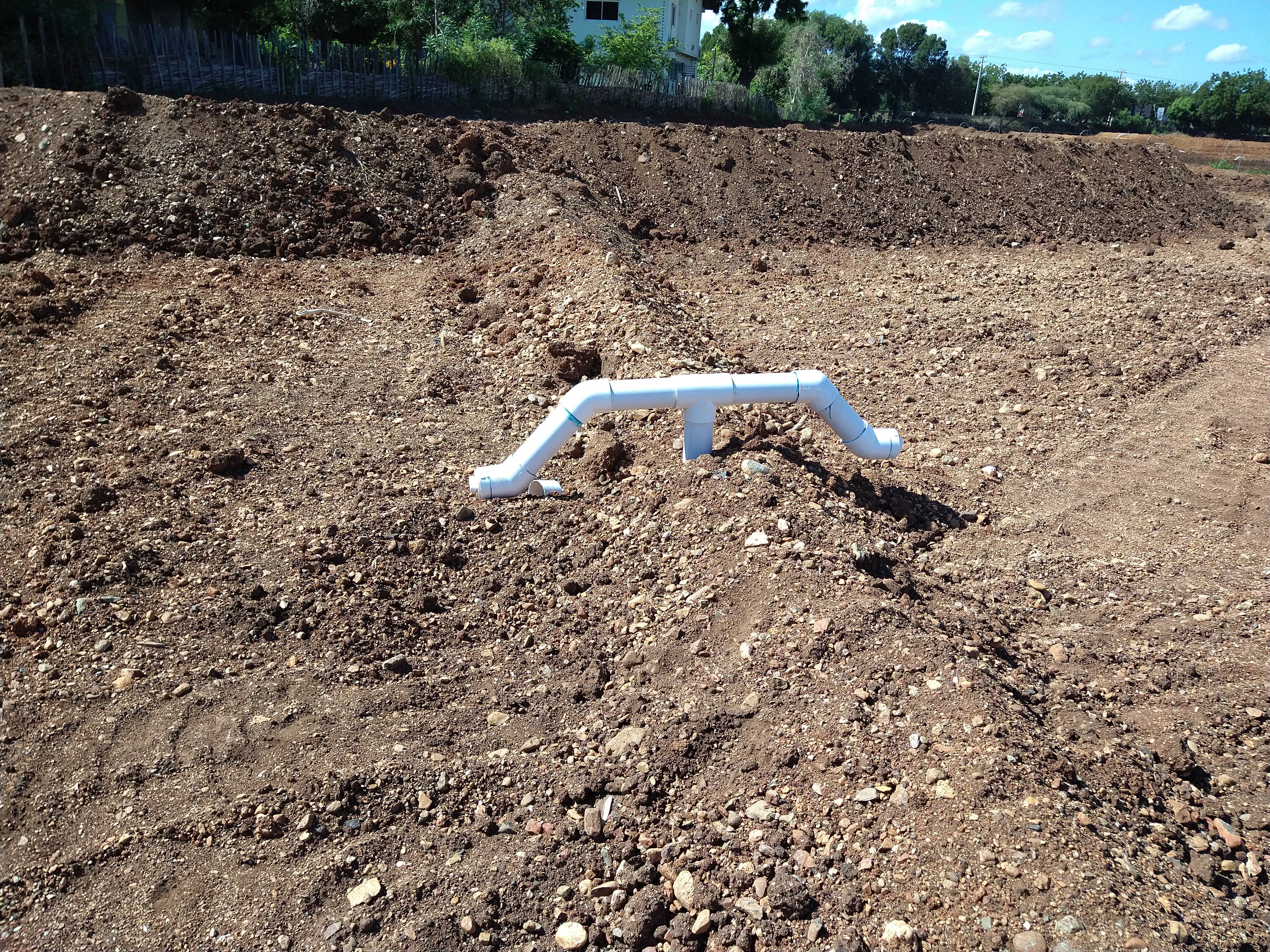
New irrigation system.
4. Anti-TR4 immediate measures
The soil improvement measures are long-term and therefore do not provide immediate protection. To prevent the introduction of the TR-4 fungus the farms are protected by us and the external producers through hygiene measures until the soil improvements have the desired effect.
5. Involvement of local and international actors
As the TR4 problem threatens banana production throughout the Dominican Republic, training courses and seminars on topics such as biodiversity, compost management and anti-TR4 measures are organised at the Centro Ecologico, universities and at the Dominican banana association Adobanano. Furthermore, there is a constant worldwide exchange with experts and institutes on developments in the TR4 issue.
David Buitenhuis, a young agricultural engineer from BioTropic GmbH, supports the branch in the Dominican Republic in implementing the PPP measures.

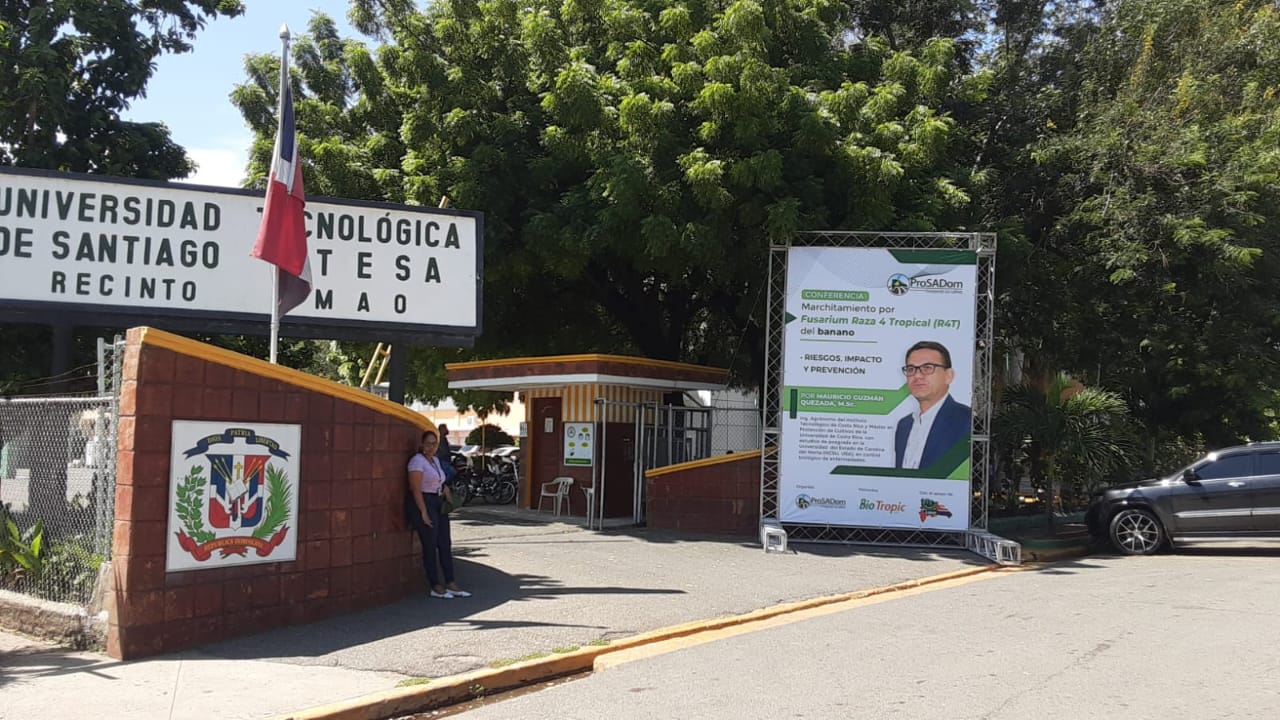
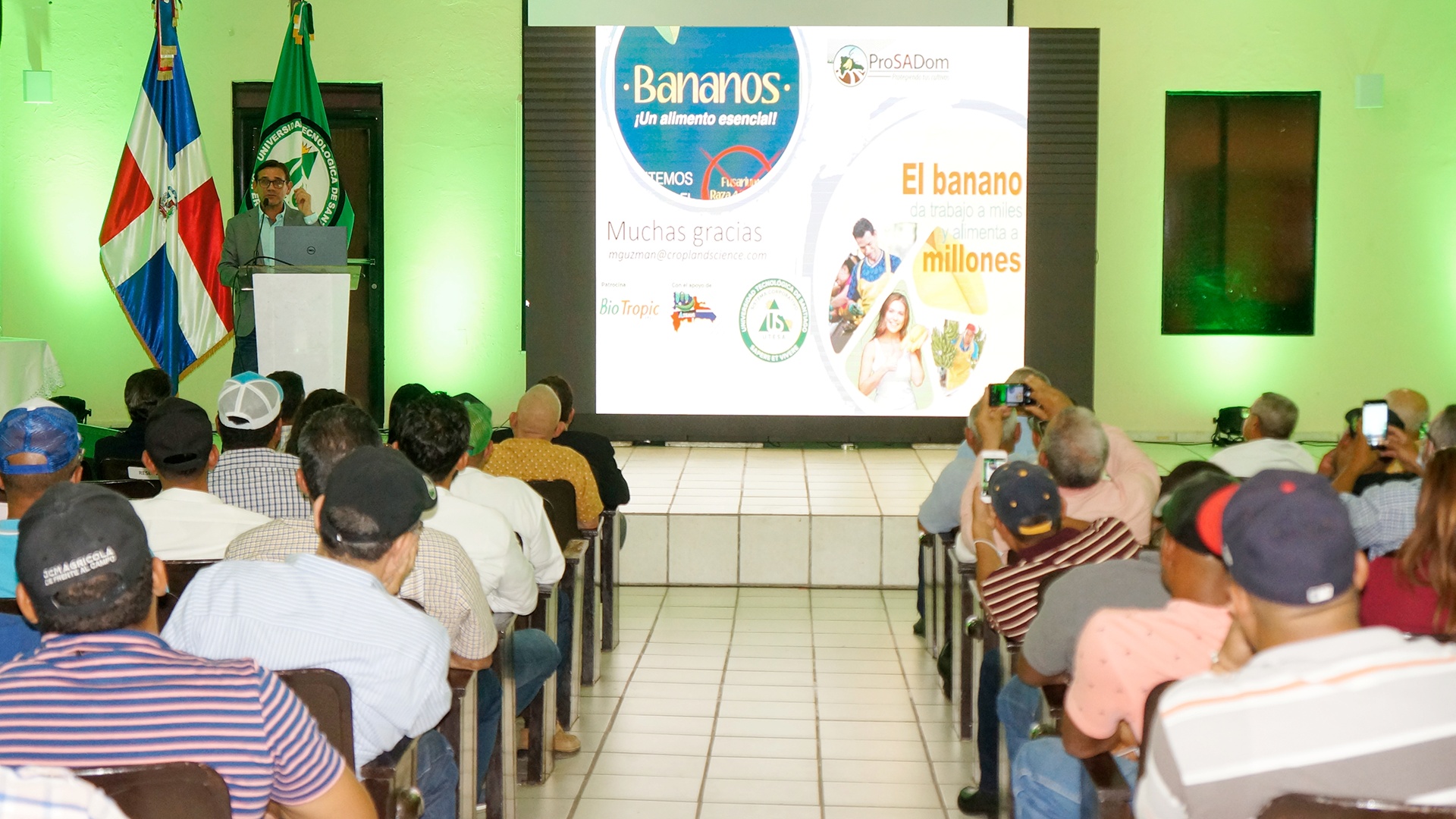
David Buitenhuis. The University Auditorio UTESA, Recinto Mao. Seminar on biodiversity at the Universität.
6. Funding by the development bank DEG
BioTropic GmbH is financially supported by the Developpp programme of the Ministry for Development Cooperation BMZ, which is implemented by the Development Bank DEG in Cologne.
If you have any questions about the project, please contact Udo Bürk (Duisburg-DE branch) or David Buitenhuis (Bleiswijk-NL branch).
Text: Udo Bürk / Tim Borgmann
Pictures: BioTropic GmbH
Status: Februar 2023





